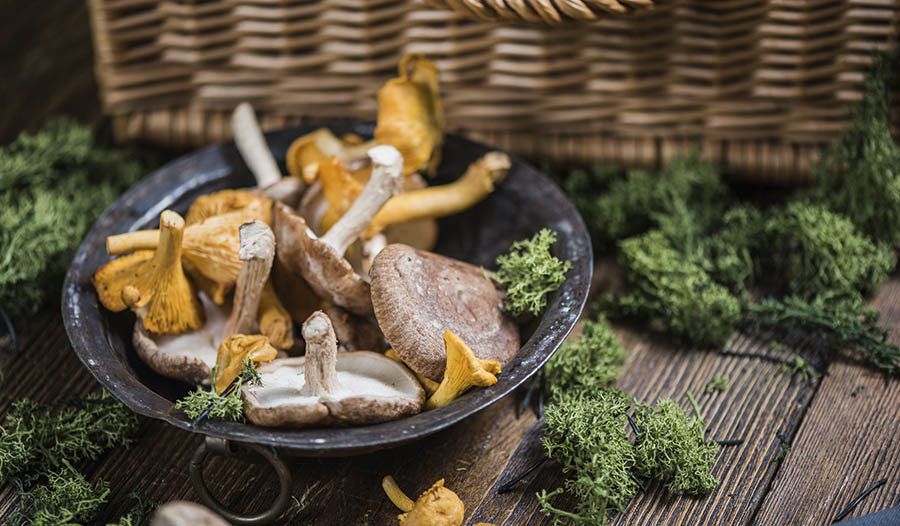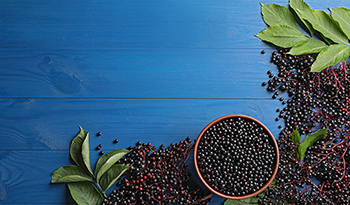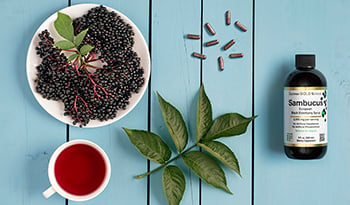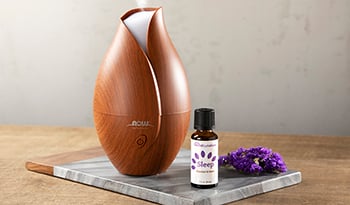Ciuperci pentru imunitate și sănătatea întregului corp

Ciupercile devin rapid noul superaliment. Acest lucru este un pic ironic, având în vedere că relația dintre oameni și regatul ciupercilor este la fel de veche ca existența umană în sine. Tendințele moderne se întorc înapoi la ceea ce strămoșii noștri au descoperit cu mult timp în urmă!
Ciupercile oferă suport fundamental pentru sistemul nostru imunitar, conținând compuși care nu se găsesc în altă parte a naturii. Datorită impactului lor puternic, mulți oameni folosesc ciupercile ca piatră de temelie a unui regim complet de sprijin imunitar pentru a ajuta la menținerea sănătății pe tot parcursul anului.
Dincolo de imunitate, studiile moderne arată că miceliul de ciuperci și corpurile fructelor pot susține multe alte sisteme ale corpului nostru. De la energie la sănătatea inimii la antioxidanți până la susținerea memoriei, această gamă imensă de beneficii pune ciupercile în centrul atenției pentru susținerea sănătății întregului corp.
Cinci ciuperci în special - Reishi, Cordyceps, Lion's Mane, Chaga, și Agaricus - pot oferi suport pentru mai multe funcții din corpul nostru.
Reishi: „Ciuperca nemuririi”
Cu beneficii pentru sistemul cardiovascular, susținerea energiei, rezistența, menținerea colesterolului, susținerea imunității și sănătatea ficatului, nu este de mirare că Reishi este numit „Ciuperca nemuririi”.
Cercetat intens, Reishi ne poate sprijini inimile și arterele într-o serie de moduri, inclusiv reducerea colesterolului, a trigliceridelor și a lipoproteinelor cu densitate scăzută. S-a demonstrat, de asemenea, că Reishi susține producția de energie în celulele inimii.
Cercetările ulterioare demonstrează o echilibrare puternică a sistemului imunitar, mai ales atunci când este expus la factori declanșatori de mediu, cum ar fi părul animalelor sau polenul. Reishi poate ajuta la protejarea celulelor hepatice și la susținerea activității de detoxifiere. Suportul sistemului suprarenal și rezistența crescută este încă o zonă pe care Reishi o susține.
Când luăm în considerare amploarea și profunzimea cercetărilor în jurul Reishi, este clar de ce mulți apelează la această ciupercă magică pentru a susține sănătatea generală și longevitatea.
Cordyceps: energie și oxigen
Cordyceps este o altă ciupercă care are recunoaștere la nivel mondial. Folosit inițial pentru sănătate în platoul tibetan, cercetarea modernă a Cordyceps confirmă capacitatea sa de a susține funcționarea pulmonară, energia și libidoul.
Cordycepsul poate ajuta tuburile bronșice și plămânii să se relaxeze și să permită mai mult aer să treacă în și din plămâni. De asemenea, susține cantitatea de oxigen care se poate difuza în sânge.
Cercetările ulterioare abordează capacitatea Cordyceps de a crește producția de energie a celulelor musculare și de a reduce producția de acid lactic. Împreună, acest lucru crește performanța atletică, dar și respirația eficientă.
Cordyceps poate avea, de asemenea, un impact asupra libidoului atât pentru bărbați, cât și pentru femei. Consolidarea conexiunii intime in relatiile noastre necesita energie, iar Cordyceps sustine aceasta energie si impuls.
Coama leului: Mintea și memoria
Leo's Mane devine rapid un nume de uz casnic în suplimentele de ciuperci datorită cercetărilor care sugerează susținerea funcției nervoase și cerebrale. Leo's Mane conține compuși specializați care declanșează factorii de creștere a nervilor în corpul nostru. Propriii noștri factori de creștere a nervilor spun apoi celulelor noastre stem să se maturizeze în celule nervoase.
Coama leului s-a dovedit, de asemenea, că susține funcționarea cognitivă, memoria și chiar starea de spirit. Miceliul Lion's Mane poate susține și concentrarea. Cu tot sprijinul pozitiv pentru creier și sistemul nervos, Leo's Mane poate fi prima „ciupercă inteligentă” din lume.
Persoanele mai tinere tind să caute sprijin prin concentrare, în timp ce persoanele în vârstă devin preocupate de menținerea funcției lor cognitive. Lion's Mane poate oferi un sprijin „atent” pentru noi toți, indiferent de vârstă. Trebuie să găsești focalizarea? Gândește-te să găsești Lion's Mane!
Chaga: digestie sănătoasă, plămâni și multe altele
Chaga este o ciupercă populară, cu unele cercetări preliminare promițătoare, de asemenea. Chaga are o activitate antioxidantă puternică, în special în celulele specifice numite celule epiteliale. Celulele epiteliale creează bariere în corpul nostru. Pielea noastră este formată din celule epiteliale, tractul intestinal și plămânii sunt, de asemenea, formați din celule epiteliale. Chaga are o serie de compuși identificați care ajută la echilibrarea răspunsului imun asociat cu aceste țesuturi. Chaga poate fi de ajutor dacă pielea sau tractul intestinal sau plămânii sunt sensibili, în special la factorii declanșatori de mediu și alimente.
Deși multe discuții s-au concentrat pe beneficiile Chaga recoltată în sălbăticie, unii experți în ciuperci sunt din ce în ce mai preocupați de daunele ecosistemelor rezultate din recoltarea sălbatică pe scară largă necesară pentru a satisface cererea în creștere a pieței. Din fericire, există opțiuni pentru Chaga cultivată durabil. Și, date interesante sugerează că Chaga cultivată în mod durabil poate fi mai concentrată în unii dintre compușii importanți care susțin sănătatea, ceea ce înseamnă că puteți beneficia de Chaga în dieta dvs., ajutând în același timp la protejarea populației sălbatice.
Agaricus Ciupercă: Dincolo de buton
Cu toate ciupercile, este important să acordați atenție modului în care ingredientele sunt cultivate și recoltate. Când căutați ciuperci Agaricus , acordați o atenție deosebită speciilor utilizate. De exemplu, genul Agaricus include ciuperca comună White Button, ciuperca Portobello și ciuperca Crimini, care sunt toate variații ale speciei Agaricus bisporus.
În timp ce ciupercile Portobello și Crimini sunt gustoase și sănătoase atunci când sunt bine gătite, majoritatea cumpărătorilor de suplimente vor căuta sprijin imunitar de la specii bine cercetate, cum ar fi Agaricus brasiliensis , cunoscut și sub numele său anterior Agaricus blazei . Cercetările arată că ciuperca braziliană „Blazei” oferă o activare puternică a celulelor imune specifice.
Toți împreună acum
Un aspect interesant atât al ierburilor cât și al ciupercilor este potențialul lor de a sprijini mai multe domenii ale sănătății. O singură plantă sau ciupercă poate avea beneficii în multe sisteme. Acestea fiind spuse, combinațiile strategice de ingrediente cheie pot crea beneficii sinergice.
De exemplu, o combinație de Reishi , Cordyceps, și Chaga poate susține funcționarea maximă a plămânilor, sănătatea cardiovasculară și rezistența fizică. Aceasta ar fi o combinație bună pentru un atlet - sau chiar un părinte ocupat care încearcă să țină pasul zi de zi!
Pentru cei care caută un sprijin imunitar larg, precum și toate celelalte beneficii ale ciupercilor, amestecurile „mari” de 6, 7 sau chiar o duzină sau mai multe ciuperci sunt incredibil de populare.
Mai multe mărci oferă acum combinații de ciuperci cu plante mai familiare, complementare, care toate susțin aceleași obiective de sănătate. Dacă vă plac ierburile pe care le luați deja, dar doriți și să încercați beneficiile ciupercilor, aceste formule rentabile ar putea fi potrivite pentru dvs.
Păstrați-l curat
Transparența și puritatea sunt importante de care trebuie să fiți atenți. Organismul ciupercii își petrece o mare parte din viață sub pământ sau crescând în interiorul materiei organice (lemn, boabe, sol etc.) în stadiul său micelial. În acest timp, ciuperca poate acumula compuși din orice în care crește. Părțile plantelor precum rizomul turmeric sau ghimbir nu diferă în acest sens.
Cu toate acestea, mai degrabă decât să absoarbă doar apă și nutrienți precum plantele, miceliul de ciuperci de fapt se descompune activ, digeră și apoi absoarbe ceea ce este în jurul său. Ciupercile și alte ciuperci sunt serviciul puternic de reciclare al naturii - așa că atunci când cumpărați produse din ciuperci, este incredibil de important să găsiți surse de renume care cresc în condiții curate și sigure. Cultivatorii trebuie să asigure hrană de înaltă calitate și sigură pentru ciupercile lor, pentru a produce cele mai bune ingrediente pentru ciuperci.
Certificarea organică și testarea independentă a contaminanților sunt întotdeauna indicatori importanți ai calității.
Cunoaște-ți ciupercile
Ciclul de viață al ciupercilor constă din trei etape: miceliu, corp de fructe și spori. Miceliul este principala etapă de viață a ciupercii, unde are loc cea mai mare creștere, expresia genelor și dezvoltarea. În timp ce crește în mediu, miceliul trebuie să se apere activ de mulți prădători și concurenți. Mecanismele proprii de apărare ale miceliului de ciuperci pot aduce beneficii și oamenilor!
Când miceliul este gata, pot apărea corpuri de fructe, care în cele din urmă eliberează spori. Când susțin sănătatea, miceliul și corpurile de fructe sunt de departe cele mai frecvent utilizate părți ale ciupercii.
Ingredientele miceliului ar trebui să fie cultivate pe o sursă de hrană pe care o mănâncă atât miceliul, cât și oamenii. Din fericire, o sursă de hrană, cum ar fi orez brun organic este atât eficientă, cât și durabilă.
Pe lângă hrănirea organismului ciupercii, mediul de creștere (ex: orez brun) devine „cultivat”, schimbând enzimatic amidonul astfel încât acestea să devină active imunologic. (În mod normal, orezul brun organic nu are activitate imunologică detectabilă.) Acest lucru seamănă mult cu modul în care Lactobacillus „cultivă” și transformă laptele în iaurt, un produs cu noi beneficii pentru sănătate unice din ingredientele de pornire. Mediul de creștere transformat devine un rezervor pentru compuși unici din miceliu.
Pentru produsele pentru corp de fructe, mediul de creștere este încă important de luat în considerare. Unii contaminanți pot deveni hiperconcentrați în corpurile fructifere cultivate pe medii de creștere mai puțin decât curate. Dacă corpurile de fructe sunt concentrate în continuare într-un extract, puritatea substratului de pornire este și mai critică pentru a asigura siguranța produsului.
Interesul crescut din partea publicului și a instituțiilor de cercetare a ajutat cultivarea și înțelegerea tehnică a ciupercilor să crească exponențial în ultimii cincizeci de ani - și noi descoperiri par să apară mereu la orizont!
În suplimente, ciupercile sunt cele mai cunoscute pentru susținerea imunității, dar acum știm mai multe despre miceliu, corpurile fructelor și constituenții lor. Astăzi, produsele din ciuperci au fost formulate pentru a sprijini respirația sănătoasă, puterea creierului, protocoalele de detoxifiere/curățare, priceperea atletică, sprijinul întregului corp sau simpla longevitate. Cunoașteți ciupercile și aproape sigur veți găsi mai multe pe care le puteți folosi în propria călătorie de sănătate.
Declarație de declinare a responsabilității:Acest blog nu are ca scop să ofere un diagnostic.






























































































